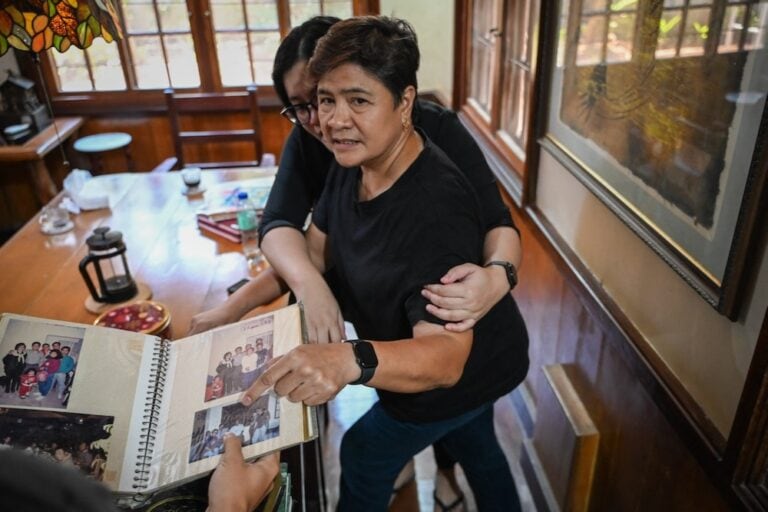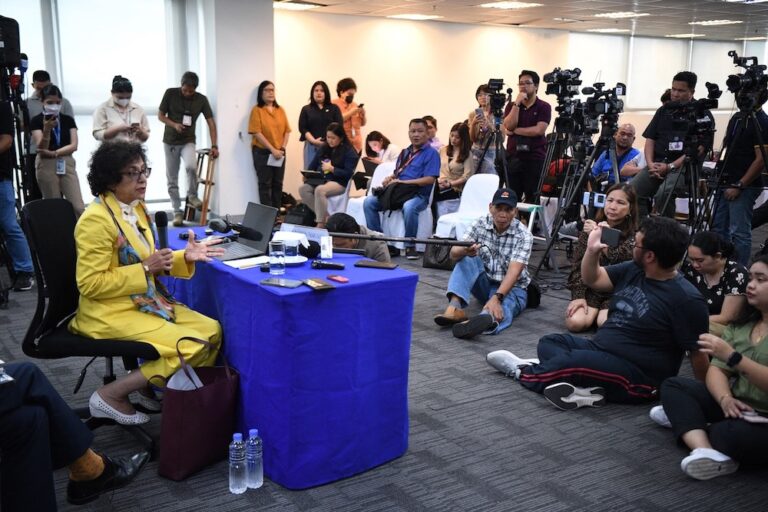(SEAPA/IFEX) – Philippine journalists are sounding the alarm over military actions purportedly designed to demonise the press and rationalise a campaign to “monitor” their activities. The National Union of Journalists of the Philippines (NUJP) is alarmed over a Powerpoint presentation that is said to have been prepared by the Intelligence Service of the Armed Forces […]
(SEAPA/IFEX) – Philippine journalists are sounding the alarm over military actions purportedly designed to demonise the press and rationalise a campaign to “monitor” their activities.
The National Union of Journalists of the Philippines (NUJP) is alarmed over a Powerpoint presentation that is said to have been prepared by the Intelligence Service of the Armed Forces of the Philippines (ISAFP), which purportedly lists the NUJP and the Philippine Center for Investigative Journalism (PCIJ) among two dozen groups of supposed communist sympathisers and “enemies of the state.”
According to a statement issued on 4 April 2005, the NUJP said it had obtained a copy of the presentation, entitled “Knowing the Enemy”, and is demanding that the national government explain and “disown” its content. The “Philippine Daily Inquirer” newspaper said Brigadier General Jose Angel Honrado had confirmed the existence of the document even as his superior, the Armed Forces chief of staff, General Efren Abu, denied any knowledge of it. Honrado insisted that the document was not meant to categorise groups as “enemies” or “communists”. Instead, he said it was merely intended to identify groups being targeted for influence by communist rebels.
The NUJP said that apart from itself and the PCIJ, other groups such as the Catholic Bishops’ Conference of the Philippines, the Association of Major Religious Superiors of the Philippines and activist groups were portrayed as “enemies” in the presentation.
On 7 April, the “Philippine Daily Inquirer” reported that the Philippine government, while addressing questions about the presentation without actually confirming its existence, admitted that the NUJP and the PCIJ, a founding member of SEAPA, were indeed covered by military surveillance operations.
However, Executive Secretary Eduardo Ermita, a former military general, was quoted as saying, “Being monitored is not too appropriate a term.” He reportedly added that surveillance was carried out “in the course of duty”, as part of the work of the uniformed services, and said, “there are a few [journalists and groups] whose activities have been known in the course of gathering information, but I wouldn’t say there is real monitoring.”
With respect to the journalist groups mentioned in the document, Ermita said his understanding was that presentation only referred to “members” of the NUJP and PCIJ as being “involved in activities that might be considered inimical to national security.”
“We are not saying the entire membership of the NUJP or PCIJ is involved [in subversive activities],” Ermita told members of the Philippine press. Ermita said that contrary to the NUJP’s statements, the presentation was not arguing against press freedom. He said it merely served as a “reminder” that some journalists are in contact with leftists.


